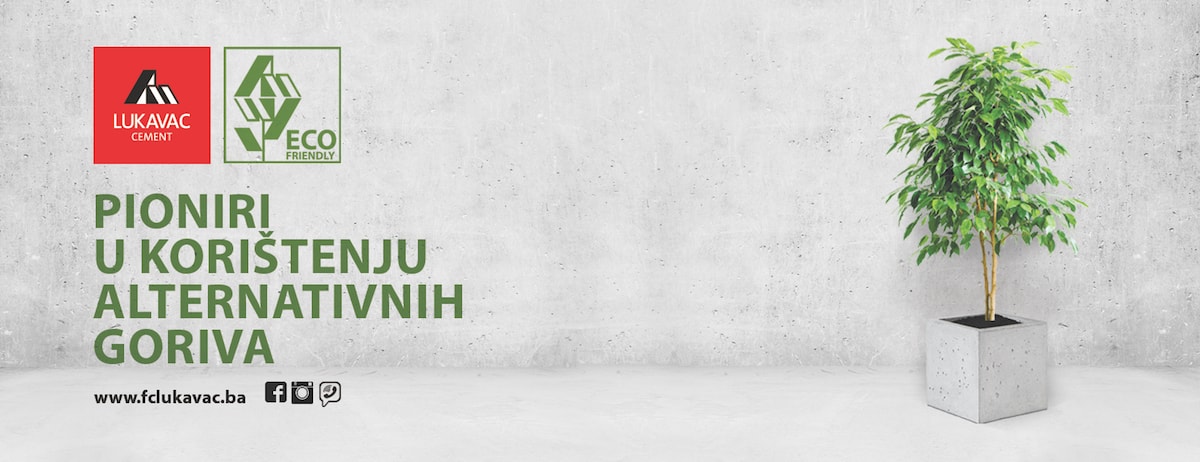Svijet, u kojem se ukupna populacija približava cifri od 9 milijardi do 2050. mora razmišljati u pravcu da sve što može iskoristiti da reciklira i upotrijebi te na taj način bude dobra majka za generacije koje dolaze. Cementna industrija bi mogla biti u scrcu ili bar kao vitalna veza u ekonomiji upotrebljavajući nusproizvode drugih industrija.
Energija dobijena iz alternativnih izvora postala je standard na Zapadu, gdje cementare zauzimaju vrlo važano mjesto u sistemu upravljanja otpadom zbog kapaciteta kojima mogu zbrinuti velike kolicine otpada. Spaljivanje otpada u cementnoj industriji vrši se bez gotovo ikakvog uticaja na okoliš, jer cementare koriste izuzetno visoke temeperature u proizvodnom procesu gdje se cjelokupan otpad pri kontroliranim uslovima u potpunosti pretvara u energiju potrebnu za proizvodnju klinkera, poluproizvoda od kojeg se pravi cement.
Austrija je predvodnik u upotrebi alternativnih goriva u cementnoj industriji sa prosječnom stopom supstitucije fosilnih goriva od 63%. Na drugom mjestu je Njemačka koja je uštedjela 2,3 miliona tona uglja. Od 35 cementara u toj zemlji 33 koriste alternativna goriva, a nadležna tijela u 27 godina nisu zabilježene štetne posljedice. Pojedine fabrike cementa su dostigle stopostotnu zamjenu fosilnih goriva alternativnim. Evropska prosječna stopa upotrebe alternativnih izvora energije u 2012. iznosi 37%, dok je svjetski prosjek na nižem nivo sa stopm od svega 14%. Perspektiva efikasne upotrebe alternatinih goriva značajno će zavisiti od vrste goriva koje su trenutno dostupne na tržištu,od fleksibilnosti pojedine fabrike da se lako prebaci sa jedne vrste goriva na drugu, te u velikom dijelu od stručnosti i znanja menadžera u proizvodnom procesu.
U Bosni i Hercegovini upotreba alternativnih goriva u cementnoj, ali i industriji uopće, još je u začetku. Osim što upotrebom ovih goriva doprinose ekološki čistijoj okolini, kompanije na ovaj način smanjuju i troškove proizvodnje jer je otpad jeftinije od fosilnog goriva. Trenuta zakonom dozvoljena stopa upotrebe alternativnih goriva je 30%.
Predsjednik Eko Foruma Zenica, dr. Samir Lemeš kaže da spaljivanje otpada u svrhu dobijanja energije, ako se vodi na pravi način, ne šteti okolini u onoj mjeri u kojoj to čine druga goriva.
Međutim, u BiH nemamo dovoljno količine otpada koji se može koristiti u ove svrhe. Za proizvodnju u jednoj fabrici potrebno je jako puno energije i količine koje postoje u BiH mogu zadovoljiti samo mali dio potreba. Također, neselektivno odlaganje otpada na deponije u BiH je veliki problem, jer na taj način ljudi bacaju velike količine iskoristivog materijala”,
istakao je Lemeš.
Fabrika cementa Lukavac krenula je u korak sa svjetskim trendovima, te prva u BiH počela koristiti ove izvore energije. Trenutno učešće alternativnih goriva u njihovoj proizvodnji iznosi do 30 posto, a mjerenja koja su proveli tokom 2015. godine pokazala su da je emisija polutanata ispod zakonom predviđenih vrijednosti i u skladu sa strogim direktivama Evopske unije.

